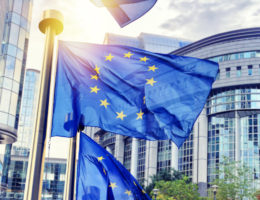The EU has finalized measures to simplify and delay the application of key sustainability regulations, providing businesses with greater clarity and planning certainty. The changes follow the Omnibus package introduced earlier in 2025 and include amendments to the Corporate Sustainability Reporting Directive (CSRD), Corporate Sustainability Due Diligence Directive (CSDDD), and related frameworks. The EU Parliament approved the amendments, and EFRAG released revised European Sustainability Reporting Standards (ESRS) to streamline reporting obligations. Updates to the EU Taxonomy, adopted in July 2025, will apply from January 2026, and targeted simplifications and delays to the EU Deforestation Regulation (EUDR) were also endorsed.
United States: Immigration update — What employers should know about immigration changes in Q4
Major recent US immigration changes are reshaping employer compliance and visa processes—from social media vetting to costly new programs and reduced work permit validity. Find out what these updates mean for your workforce and future planning. For example, the Gold Card Program launched, offering a path to permanent residence but with unclear timelines and requirements. EAD validity periods have been shortened, and automatic extensions removed for most categories, increasing compliance risks. Proposed ESTA changes will require extensive social media history, making applications more complex.
International: New US Executive Order Signals Heightened Antitrust Scrutiny in the Food Supply Chain Sector for Foreign-Controlled Companies
In brief President Trump has issued an Executive Order (the Order) directing the Department of Justice (DOJ) and Federal Trade Commission (FTC) to launch investigations into the U.S. food sector, focusing on potential price-fixing, other forms of criminal collusion, and non-criminal anticompetitive conduct. The Order creates new Food Supply Chain…
Canada: Stepping into the digital financial future – the Federal Government tables the new Consumer-Driven Banking Act
On 30 November 2025, Canada introduced the Consumer-Driven Banking Act (CDBA) as part of Bill C-15, establishing a federal framework for open banking.
The CDBA aims to enhance consumer control over financial data by creating a secure system for data sharing among accredited entities. It designates the Bank of Canada as the supervisory authority, sets accreditation and security standards, and mandates clear consent requirements. The Act also introduces liability protections, complaint mechanisms, and enforcement measures, including penalties of up to CAD 10 million. Implementation is expected in early 2026 following supporting regulations.






